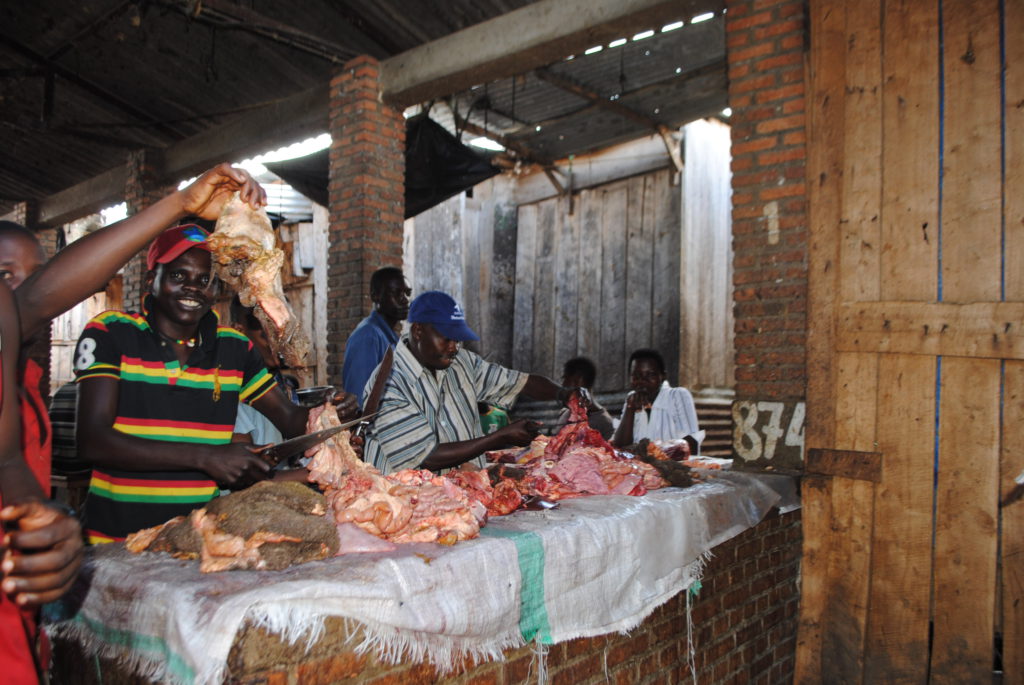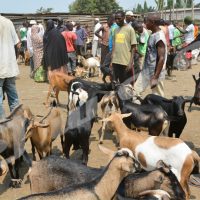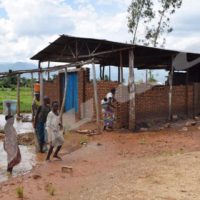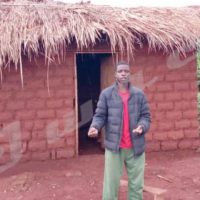Rumonge market has about 1300 traders. Among them 833 have their own places inside the market. Others are all around the market. Women selling fruit are gathered outside. In the market, it is hard to find a path very easily without squeezing oneself. However, everybody tries to make his/her own business.–By Diane Uwimana
Butchers are located inside the market. They hold a small place. Around them, there are businessmen holding clothes as well as staple foods. While entering the place, there is a bad smell. “We do not wash our hands after slaughtering cattle,” claims one butcher, met in Rumonge market, after serving meat to a client.
Looking at their place, it is difficult to believe how on earth they succeed to spend one hour in that place. Blood, cow bones, pieces of meat are observed on the ground. If one tries to pass there, he/she has to pay attention on where she/he puts his/her foot.
“We very often alerted the communal authority but in vain. We fear to be affected by different diseases caused by dirtiness,” says Joseph Banyankiyubusa, the Chairman of the Rumonge Traders’ Committee. He indicates that hoses running water into that place are blocked. “Not only, were those hoses blocked, but also the Commune owes much money to the Regideso Company (Electricity and Water Company). But if this problem is solved, we may get water from the tap installed in that place,” explains Banyankiyubusa.
It is worth noting that two taps of water are installed and used by all traders of that market. Fortunately, loos installed inside the market have taps of water and everyone must pay BIF 100 for its day-to-day maintenance. For butchers, the situation is even worse because they neither have water nor a cold room for their meat. “If we do not finish selling our meat, we should continue to serve our clients under any market conditions,” speaks out another seller holding a knife in his hand.
Banyankiyubusa notes that quite often butchers hardly work in dirty places.
The butchers ask for water in that place in order to prevent any disease. “We pay BIF 7000 per month, why doesn’t the administrative authority use a small amount to solve the problem of water in that area; but butchers and the population may be affected by any kind of disease.”
Ferdinand Niyokindi, the Technical Advisor in Charge of Development at Rumonge Commune mentions that the problem is known by the communal authorities but for the moment, nothing can be done to find out a solution. “We work closely with Regideso, but the problem must be solved by the CEMARUBI Association which is in charge of the market management,” points out Niyokindi. Iwacu has tried to contact CEMARUBI authority for more information but in vain.




















 IWACU Open Data
IWACU Open Data

